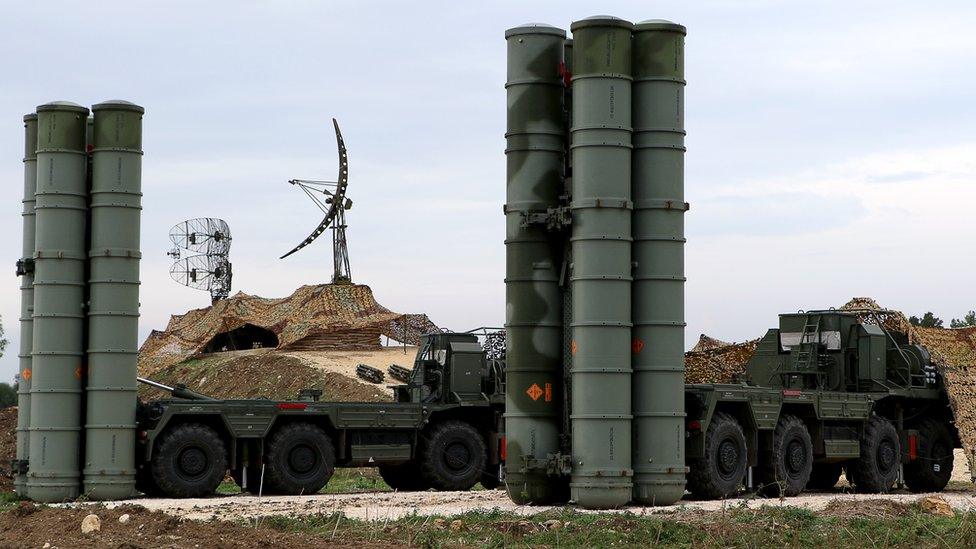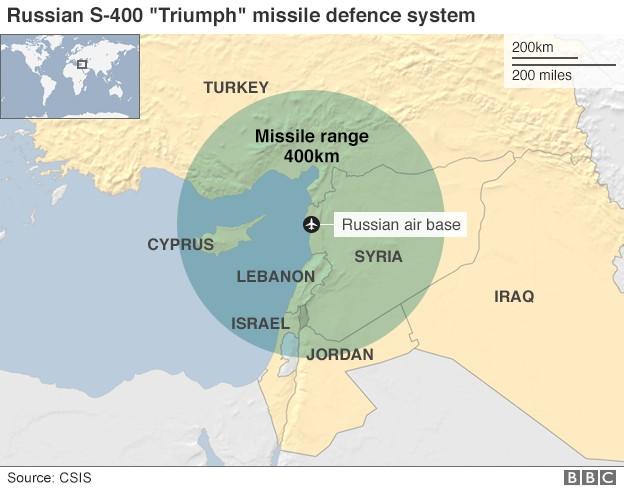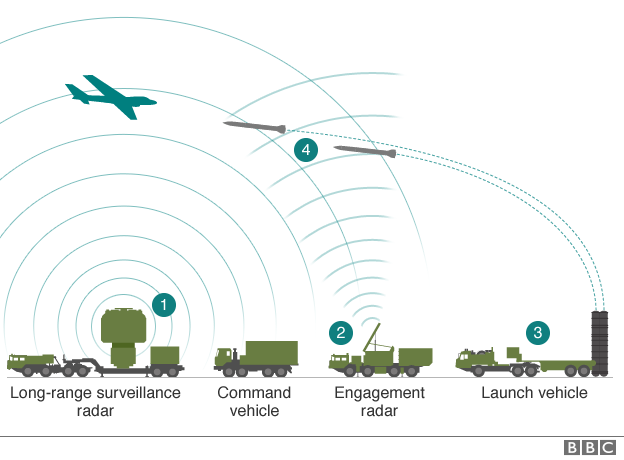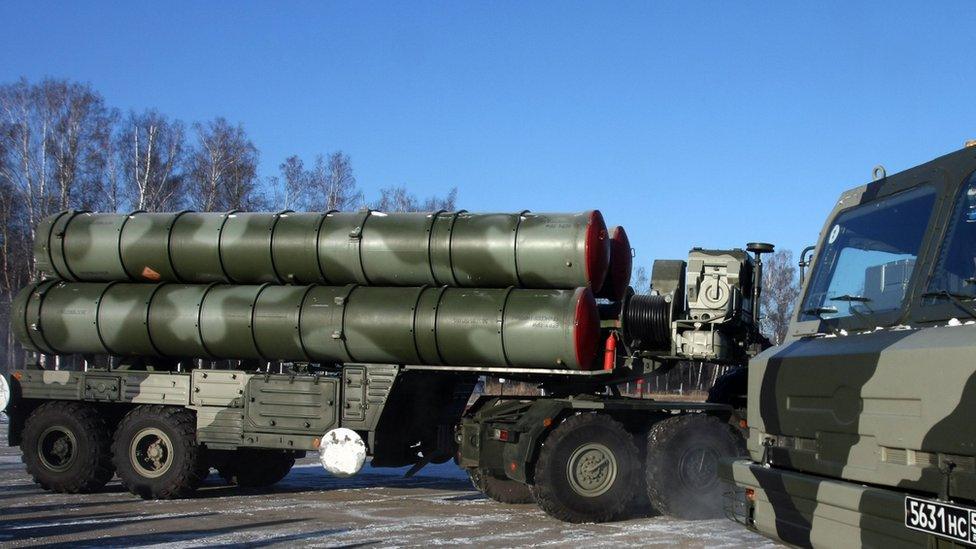Russia S-400 Syria missile deployment sends robust signal
- Published

The S-400 is an advanced air defence system with extraordinary range
The shooting down of a Russian Su-24 warplane by Turkish fighters has prompted Moscow to reinforce its contingent in Syria.
Russian warplanes have now been seen carrying air-to-air missiles and a Russian warship - the Moskva - was moved closer to the Syrian coast, to enable its air defence missiles to provide additional cover over the Russian air base near Latakia.
But the most significant reinforcement has been the deployment of a sophisticated S-400 air defence system. Its large tubular launchers and associated radar and command vehicles are now in position at the Russian base.
The S-400 is one of Russia's most modern air defence systems with an extraordinary reach. From the airbase near Latakia the S-400's surface-to-air missiles could strike targets in an arc that takes in much of Israel; the eastern Mediterranean (including Cyprus where British jets are based); and northwards to cover a large part of Turkey beyond the Syrian border.
Protecting 'air assets'
Russia's powerful radars - that reach even further than its missiles - enable it to have a detailed picture of the wider "aerial landscape".
For example, they can see developing coalition air operations and can keep a close track on what the Israeli Air Force is doing.


Manufacturer: Almaz-Antey arms firm; Deployment: Hmeimim airbase near Latakia - entered service in Russia in 2007; Range: 400km (248 miles); Speed: up to 4.8km (3 miles) per second; Max target height: 30km - can track up to 80 targets simultaneously; Types of target: aircraft, cruise missiles, medium-range missiles, drones, other airborne surveillance systems. (Sources: RIA Novosti, Russian 1TV.ru)

Long-range surveillance radar tracks objects and relays information to command vehicle, which assesses potential targets
Target is identified and command vehicle orders missile launch
Launch data is sent to the best placed launch vehicle and it releases surface-to-air missiles
Engagement radar helps guide missiles towards target

There is of course no suggestion that Russia intends to disrupt coalition air operations. Moscow is making a point by deploying the S-400. It sends a robust signal, not just to Turkey, but to public opinion at home that Russia intends to protect its air assets in Syria by whatever means necessary.
However it is very hard to imagine the S-400 actually engaging a Western warplane. Given the number of aircraft operating over Syria it would be difficult, for example, to specifically pick out a Turkish jet. But the presence of the missile system inevitably complicates coalition planning.

The deployment of the S-400 underscores the continuing need for contacts between the US-led coalition and the Russians
Nato and US spokesmen have said little about the S-400, though one senior Nato diplomat acknowledged that the deployment of this and other sophisticated systems into "one operating area over Syria where many different nations are flying" makes the situation even more "complex".
Since the S-400's deployment the number of coalition strikes in Syria appears to have gone down, with more of them carried out by drones. However it is hard to say if this reflects concern about the new threat or simply a response to the ebb and flow of the campaign.
When I asked the Nato Secretary General Jens Stoltenberg about the potential threat from the S-400, he was short on specifics, but saw its deployment in Syria and its potential coverage of a slice of Turkish air-space as part of a wider Russian strategy.
He said that from the Baltic, through Ukraine and Crimea, to the eastern Mediterranean, Moscow was deploying what he described as sophisticated "anti-access capabilities"; these presumably intended to try to constrain Nato deployments in the event of any crisis.
The deployment of the S-400 underscores the continuing need for contacts between the US-led coalition and the Russians.
Israel is stepping up its military-to-military discussions with Moscow.
At the weekend Israeli Defence Minister Moshe Yaalon noted that a Russian warplane had penetrated Israeli air space briefly but it was not shot down since it was not perceived as a threat.
While Nato in public insists that it will do everything needed to defend Turkey's sovereignty, there are many here in Brussels who in private may wish that the Turks had been a little less robust.